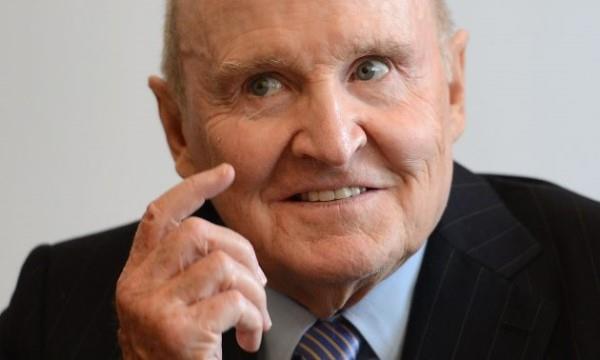
Avoiding technology risk and the demise of businesses
The decline of once great corporations is always a sad spectacle. And the current slow unravelling of the once great General Electric Corporation is a recent example that is of particular interest to me because GE acquired my former employer, the RCA Corporation (after my departure) in 1985 in a merger that could have created the most powerful industrial technology company in the US – but didn't, for reasons explained below.
The RCA Corporation (originally the Radio Corporation of America) was built by the visionary David Sarnoff, starting in the early 1920s, into a world-leading technology business initially focused on wireless communications. Sarnoff loved technology and believed in creating corporate value by bringing innovative products to the world market first. He also believed in strong intellectual property protection and the company built a very valuable patent portfolio that was offered for the license.
The daily<> Must-reads from across Asia - directly to your inboxRCA created and owned NBC, one of the three leading television broadcast networks that pioneered color television broadcasting. RCA was a pioneering leader in many technology industrial sectors including color television and other consumer electronics, radar systems, semiconductors, lasers, wireless communications and space satellites. New product innovations came from research at the Sarnoff Laboratories in Princeton, New Jersey, coupled with strong division product development.
David Sarnoff retired in 1970 and was replaced as CEO by his son Robert (who rose through sales at NBC). This was just the time when Japan emerged as a formidable new competitor in consumer electronics. Robert Sarnoff thought he saw the handwriting on the wall and that technology businesses were becoming too risky and unpredictable. His response was to diversify RCA into what he thought was low-risk commodity consumer products with predictable revenues and profits. This meant massive acquisitions.
RCA became a conglomerate without a focus. Businesses acquired were large – Hertz car rental, Banquet frozen foods, Coronet carpets and even CIT, a consumer finance company. After these businesses were acquired they lost their seasoned management who were richly rewarded by the purchase price and their financial performance deteriorated. In parallel, investment in the existing technology businesses lagged. Research and development budgets were gradually reduced to boost profitability while the factories were allowed to fall behind the state of the art.
Eventually, the stock performance of the company lagged as well. The board of directors watched the poor stock performance and looked for a way to restore value. Thornton Bradshaw, the chairman recruited Robert Frederick as CEO with the mission to revitalize the company. Unfortunately, this was far beyond his skills. The answer these two came up with was a sale of the company with a big stock price premium. Discussions were begun with Jack Welch, CEO of GE, that led in 1985 to RCA, with profitable revenues of about $10 billion, being sold for $6.3 billion.
Welch, (the CEO of GE between 1981 and 2001) never gave his reason for the acquisition, but the public speculation was that GE and RCA together would strengthen their technology leadership position in the market. Subsequent events showed otherwise. Welch was not interested in boosting his risky technology businesses. The acquisition was a move to acquire a cash generative business – the NBC network – at a bargain price. His GE strategy was to build a low risk, high predictability financial service business. Welch over time sold the businesses that were part of RCA keeping only NBC.
The RCA Laboratories were divested, while GE kept the patent portfolio that generated over $100 million a year in license revenues. At the same time, GE rapidly grew its financial services business keeping just a few other industrial and consumer businesses. The growing financial services became the perceived value drivers of GE and on the basis of growth and predictable financial performance, the GE stock performance was excellent. From an industrial company, GE under Welch was gradually transformed into a financial service business that generated its growth in revenues and profits.
But this success did not last because the financial businesses had risks of their own – creditors not paying their bills in bad times. Welch retired in 2001 and his successors were faced with a melting ice cube. The GE financial business became an albatross as its leasing business turned unprofitable. Successive CEOs after Welch struggled to rebuild the GE industrial businesses with little success, as we see today, and the company is slowly sinking.
Each business failure has its own lessons, but the story of RCA and GE reinforced what I learned over decades of investing and management experience – you can't escape technology risks because eventually, it is in some form the value creation driver in modern industry. Neither can you escape foreign competition by withdrawing into secure niches – they just don't last. There is no place to hide a big business. Timely investing is the only tactic that works.
Dr. Henry Kressel is a noted inventor, technologist, author and private equity investor at Warburg Pincus. He formerly headed electronic device research at the David Sarnoff Research Center of the RCA Corporation. His most recent book is If you want to change the world: A guide to creating, building and sustaining breakthrough ventures, published by the Harvard Business Review Press, 2015.
<> <> <> <> Technology Opinion General Electric RCA Corporation NBC David Sarnoff Robert Sarnoff Jack Welch Comments
Legal Disclaimer:
MENAFN provides the
information “as is” without warranty of any kind. We do not accept
any responsibility or liability for the accuracy, content, images,
videos, licenses, completeness, legality, or reliability of the information
contained in this article. If you have any complaints or copyright
issues related to this article, kindly contact the provider above.


















Comments
No comment